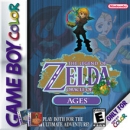Cultural Impact: Braid. Which is also among my favorite games from this year. There were technically indie games before Braid, but let's face it (games like Alien Hominid, Yume Nikki, and Aquaria, for example), like five of us ever heard of them. (Even I didn't hear about Yume Nikki for more than a decade after its release.) Braid changed that forever. Of course some of the novelty of it being an indie game was somewhat lost on the fact that the designer apparently had $180,000 just lying around to sink into making this game himself, so not entirely an inspiring story of the little guy overcoming the odds here, but nonetheless, like Ross Perot before him, Jonathan Blow made independence more appealing, only without threatening to reduce your grandparents' Social Security payouts. He's sort of the Ross Perot of video games. Anyway, point is that this was the first indie game that really sold large numbers of copies. Now that it was evident there was a market for modern 2D games and such, games that people could make on their own terms, the business was soon flooded with such titles, creating the vast indie landscape that we know today. Being primarily an indie gamer myself these days, I have a highly positive view of this development.
It was time for something like Braid too. It'd been over a decade since 2D games had been much of a thing and clearly there was a growing hunger for a reinvention thereof driven by some combination of nostalgia and a yearning for less commercialism in game design.
Favorite Games: Braid was also one of my favorite new games in 2008. It wasn't quite the next Portal to me, but the game's regular introduction of new time mechanics and the ways you used them to find deceptively simple solutions to many a head-scratcher that appeared extremely complicated on the surface level kept me constantly engaged, and it's equally enigmatic narrative that turns your traditional damsel-in-distress plot into something much more interesting and clearly personal served as its own kind of captivating puzzle.
That said, when it comes to my absolute favorite game from this year, at the time it was Mirror's Edge. Mirror's Edge indeed remains among my favorites of '08. Second-fave maybe today. The story's cliched and forgettable, but Mirror's Edge is a rare game that won out for me on style points alone just because of how revolutionary it felt to play a parkour-based action-platformer in the first-person perspective. Why hadn't anyone thought to make a first-person platformer before, or at least that I'd ever heard of? It still feels completely awesome and remains a strikingly unique game even today! Even in comparison to its own sequel, which largely ruined the whole experience by changing the format to a semi-open world adventure.
My absolute favorite 2008 game to play these days though is Valkyria Chronicles, not only for its gorgeous art style and all that, but for its dedication to the human element of war. Morality in Valkyria Chronicles isn't clear-cut: everyone fights for a reason, not just because they're born evil or something, they each have their own flaws. And I mean that the game does this for all of its characters, not just the leads, and that makes it really stand out from the crowd. And racism is a major theme that the game takes the time to really explore with sincerity of conviction. It's probably my favorite tactical game.
I also quite enjoyed my time with Persona 4 and its particular cast of characters. In addition to strongly appreciating the way its game play is directly connected to its storyline and themes, it was among the only games out there at the time that confronted topics like people's gender presentation and one's often complex relationship thereto head-on, and I appreciated that, especially when it came to characters like Chie, Naoto, and Kanji, though on a more secondary note, I was disappointed (yet hardly surprised) by its seeming unwillingness to validate non-heterosexuality, particularly as it may have pertained to a couple of those characters.
To craft a list of my favorites from 2008...
1. Valkyria Chronicles
2. Mirror's Edge
3. Braid
4. Rock Band 2 <-- Noticing a pattern here yet? 
5. Persona 4
6. World of Goo
7. Fallout 3
8. Fable II
9. Mario Kart Wii
Last edited by Jaicee - on 14 November 2023






























































